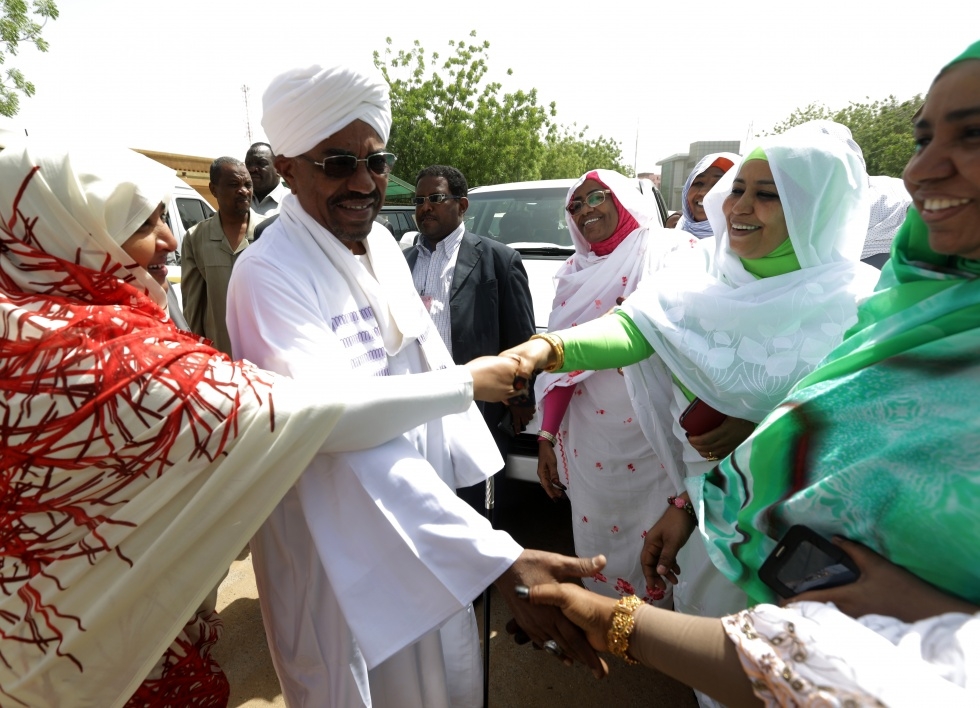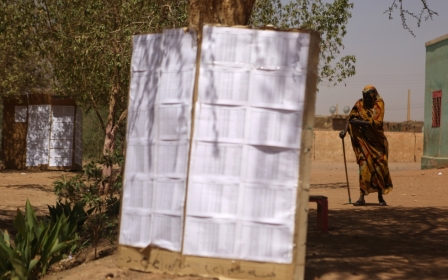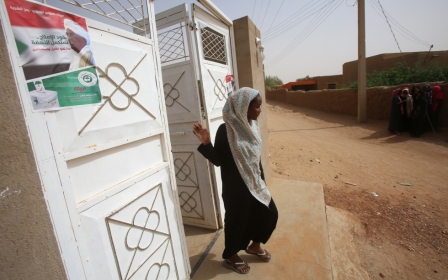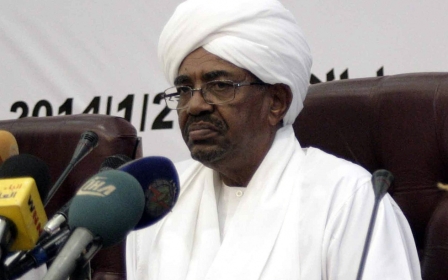Sudan's Bashir wins 94.5 percent of controversial presidential vote

Sudanese President Omar al-Bashir was reelected on Monday with 94.5 percent of the vote in polls he had been widely expected to win, the National Electoral Commission said.
"The number of votes obtained by candidate Omar Hassan Ahmed al-Bashir of the National Congress Party was 5,252,478, or 94.5 percent" of ballots cast, NEC chief Mokhtar al-Asam said at a news conference in Khartoum.
Bashir - wanted by the International Criminal Court for war crimes - had faced 13 little-known challengers for the presidency, with the the mainstream opposition boycotting the vote.
His closest competitor, Fadl al-Sayed Shuiab of the small Federal Truth Party, won "79,665 votes, or 1.43 percent," Asam said.
Polling stations had been quiet during the vote, despite a nationwide one-day extension, and the African Union's Election Observer Mission said there had been a "generally low turnout of voters throughout".
Asam said turnout was 46.4 percent across the four days of polling, in which representatives of the national and state parliaments were also chosen.
The European Union has issued a statement noting that the controversial elections were conducted in "an unfavourable environment," the outcome of which, it asserted, "could never be legitimate".
The Troika – the US, Norway and Britain – likewise said that the Sudanese polls did not express the "will of the people".
The Canadian charge d'affaires in Sudan was summoned by Khartoum on Monday, after expressing concerns over the impartiality of the elections.
Bashir's NCP wins parliament polls
Sudan's ruling National Congress Party (NCP), led by Bashir, also won over 75 percent of the seats in parliament.
The NCP secured 323 of parliament's 426 seats, Asam said.
The Democratic Unionist Party came in second with 25 seats, while 19 seats went to independent candidates, he added.
The election, which began on 13 April, had initially been scheduled to end on 15 April, but the commission extended polling by one day due to low turnout on the first three days of the vote.
The elections were dogged by logistical, administrative and security-related difficulties, according to the electoral commission.
Some 13 million Sudanese were eligible to vote in the polls.
Bashir seized power in a 1989 coup, and won reelection in a 2010 election marred by an opposition boycott and criticism that the vote did not meet international standards.
New MEE newsletter: Jerusalem Dispatch
Sign up to get the latest insights and analysis on Israel-Palestine, alongside Turkey Unpacked and other MEE newsletters
Middle East Eye delivers independent and unrivalled coverage and analysis of the Middle East, North Africa and beyond. To learn more about republishing this content and the associated fees, please fill out this form. More about MEE can be found here.




